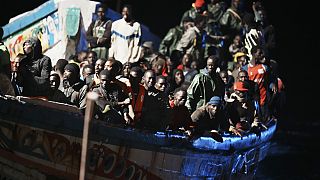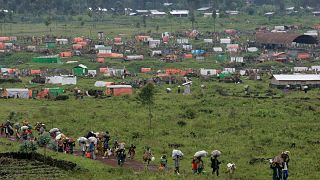Senegal
Senegal's President Macky Sall has ordered emergency measures to be taken to stem the growing flow of migrants taking to canoes to reach Europe, his office said on Wednesday evening.
Mr. Sall asked the government on Wednesday "to take emergency security, economic, financial and social measures to neutralize the departure of emigrants from the national territory", said a communiqué issued after the Council of Ministers.
The effort will involve the Ministers of the Interior, the Armed Forces, Youth and Fisheries, according to the communiqué, which also refers to the national strategy to combat irregular migration presented by the government in July.
Senegal, a West African country that President Sall is striving to put on the road to emergence, is facing a flood of departures by sea bound for the Canary Islands, a Spanish archipelago and gateway to Europe.
Several times a week, the press reports arrivals of pirogues in the Canaries, interceptions or rescues in the Atlantic, off Senegal or in the waters approaching the Canaries. This dangerous migration has led to a series of tragedies.
Since the beginning of the week, the press has again been reporting the disappearance of a considerable number of migrants from Bargny, on the coast east of Dakar. AFP has been unable to obtain confirmation of these disappearances from the authorities.
The migration issue has become a theme in the ongoing campaign for the February 2024 presidential election. Prime Minister Amadou Ba is the presidential camp's candidate to succeed Mr. Sall.
The Canary Islands have seen a record number of migrant arrivals since 2006, with 30,705 people arriving between January 1 and October 31, more than double (+111%) the figure for the same period last year, according to the latest figures from the Spanish Ministry of the Interior.
Two-thirds are from sub-Saharan Africa, according to the European coastguard and border guard agency Frontex. Senegalese, along with Moroccans, are the most numerous new arrivals, according to Frontex and several Spanish NGOs.












Go to video
Nearly 200 migrants intercepted off the coast of Senegal
02:15
Small boat crossings by migrants in northern France on the rise
00:58
Senegalese PM Sonko says international order is shifting to a more balanced, multilateral world
01:04
Senegal ditches Akon's 'unrealistic' city project
01:00
Pix of the Day: July 3, 2025
01:12
Senegal: Ousmane Sonko's defamation conviction upheld by Supreme Court